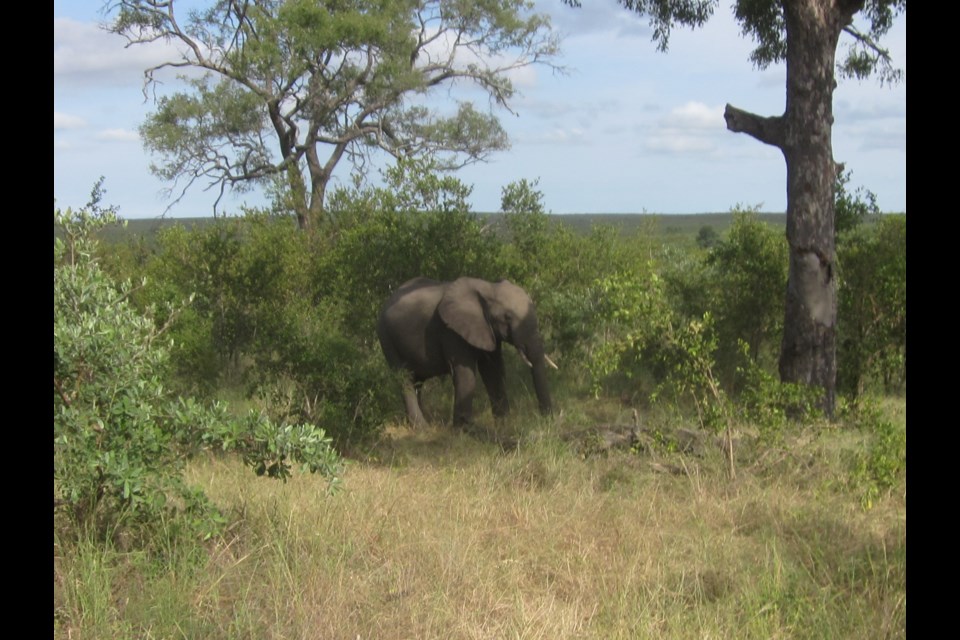UNITY — In the previous instalment of the series, a young David Keay of Unity travelled to work in a gold mine near Johannesburg, South Africa. He frequently wrote letters to his parents and siblings who remained in Unity. These letters were shared among David's nieces and nephews.
This is part three of the series.
It is July 1937, and David Keay has been living and working in South Africa with his uncle Sandy for roughly nine months. Keay’s favourite entertainment is attending the Springs Theater, where he watched a war film, The Charge of the Light Brigade, and The Great Barrier, a picture that showed the experiences and conditions workers endured while building the Canadian Pacific Railroad through the Canadian Rockies.
David’s classes at the tech ran through August and he received the highest mark of the class with 76 per cent. While he was living in South Africa, the Keay family back in Unity would frequently send him copies of the Free Press newspaper along with their letters, which spoke of a dry summer and having to sell some horses.
By August 1937, winter is almost summer. David had become friends with Dave Allan, who is a blacksmith at the Daggafontein mine. Letters from Unity reported crop failures and no saskatoon berries due to drought.
In early September 1937, David mailed a letter that used the new coronation stamps. David was promised a job underground as a “sampler.” His boss, the reduction/smelt manager, wanted David to stay, but David insisted on taking the underground position. He stated in one of his letters that he did not regret his experience in reduction for he now knows the whole procedure of obtaining the gold.
To work underground, David needed a pair of big hob-nail boots. The stopes (mining tunnels) were about three to four feet high and one and a half feet wide, so workers had to crawl for up to a mile or so. They all had to watch for falling rock and blasting added to the danger.
For David, the new position had a slight pay increase. His first two months on the job paid 10 pounds per month. Workers would see multiple pay increases over their time underground, and they could eventually earn 20 pounds per month.
It had now been a whole year since David had left his childhood home. By the end of October 1937, the Daggafontein Mine was producing close to 45,000 ounces of gold each month through a dozen different gold mines. David is set to write six exams which will be written in Johannesburg.
The altitude where David was living was 3,000 feet higher than his home back near Unity, so the air was much lighter. He managed to take in the picture show Rainbow on the River, which showed for 18 weeks straight in Johannesburg. David is now required to take first aid classes in the case of any mine accidents.
Back in Unity, David’s mother Grace is worried about him working underground. His day-to-day routine starts off with getting into underground togs and headgear before he joins up to 30 other men in the cage. With four decks, close to 120 men are sent down 5,000 feet below the surface in two and a half minutes. While underground, many take off their jackets, leaving them in a pair of trousers and their big hob-nail miner boots. When the worker reaches the stope, they are assigned, knee pads are donned and they crawl to the work site. On average, David would collect 30 samples in a day, which were recorded, and values were given in the assay office.
David often reminisced about shooting rabbits with former neighbour friends back in Canada, however there are few rabbits in South Africa as the white ants tend to target the young as prey. Although it is near the end of December, the local weather has seen rain with lightning and heat.
A visit to the Joubert Park in Johannesburg was made just before Christmas. Trees, gardens and a fountain were the main attractions. A tall flagpole also stands in the park, which was a gift to the city of Johannesburg from the city of Vancouver. The pole was a Douglas Fir pole weighing one and a half tons, measuring 105 feet tall with a 15-inch base. The gift was to commemorate the golden jubilees of both cities (1886 -1936).
David was invited to join Jess Hicks and family for Christmas dinner. He commented in his last letter of the year that while holiday celebrations were ending at 2 a.m. where David was, it would have been 7 p.m. back home where his family would still be enjoying their Christmas dinner.



